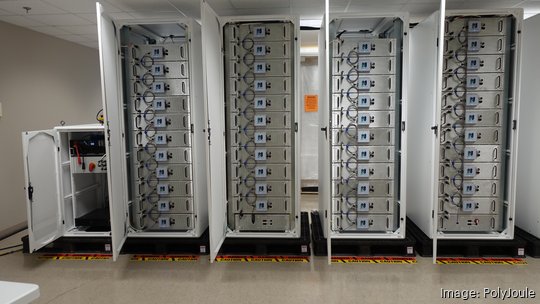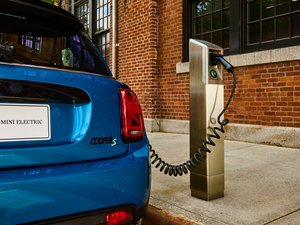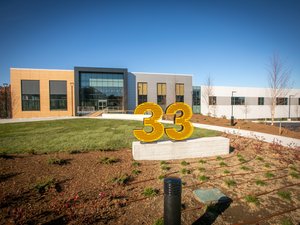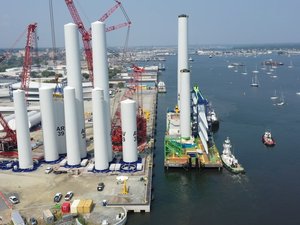
A Billerica-based battery manufacturer is one of two Massachusetts companies to be selected for the Amazon Web Services Clean Energy Accelerator 4.0.
Out of 800 applicants from 75 countries, PolyJoule was selected as one of the 21 companies to join the Amazon accelerator. The accelerator provides startups with access to its generative AI as well as partnerships and trials with leading energy, utilities and industrial corporations.
Eli Paster spun PolyJoule out of MIT in 2021. It started when he was sitting around with his professors discussing ideas for conductive polymers. A couple of years later, PolyJoule — poly for polymers and joule for the measurement of electricity — is using conductive polymers in a new approach to batteries that can be manufactured entirely in North America and eliminates the need for conflict metals like zinc and cobalt.
The batteries are made of PVC, the same material used for the large plastic pipes you might see at Home Depot. PolyJoule can use regular or recycled PVC as its feedstock and adds additional materials that Paster calls PolyJoule’s “secret sauce.” After a few different chemical processes, the PVC stock turns into a black powder that conducts and holds electric charges.
PolyJoule wraps the concoction in aluminum foil, sticks it into a larger battery shell and makes a battery that, according to Paster, is safe, non-toxic, non-flammable, recyclable, lower cost and doesn’t require active climate control.
- Sign up for The Beat, BostInno’s free daily innovation newsletter. See past examples here.
“We go really long, and that has to do with the polymer, because the polymer is extremely robust. There are no metals in there, so it can go for a long cycle life,” said Paster. “And, because we're using a nonmetallic active material to store charge, it doesn't spontaneously combust.”
According to Paster, a PolyJoule battery lasts 12,000 life-cycles compared to the 3,000 life cycles of traditional lead-acid batteries. They also don’t risk combustion like Lithium-Ion batteries do, because there is nothing in them to combust.
PolyJoule aren’t the only battery manufacturers in the greater Boston area. PureLithium is developing lithium metal batteries as a way to reduce the need for conflict metals and cut down supply chain needs.
Paster declined to share the details of PolyJoule’s latest fundraising round, but said that the startup still has contracts to fulfill that contributed to its success.
The goal of sustainable and non-toxic batteries is not to displace green energy systems, but to supplement existing ones and make them more efficient.
“Part of why we're excited is because we've got a long-duration energy storage product. It's really safe. It can go anywhere, including, data centers, which are highly valuable,” said Paster. “So we see an opportunity to say, okay, we've got a nice thing that can be paired with eight-hour solar or 30% capacity wind to provide 24/7 green electrons.”








